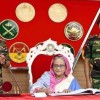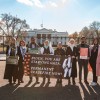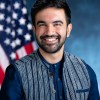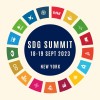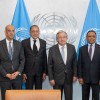Why Does Bangladesh become so important in US foreign policy?

The unprecedented involvement of the United States in conducting a free, fair, and credible election in Bangladesh has given political and security analysts new ideas. Almost a year after the ban of the United States on the top officials of the RAB, the announcement of the ban on the entry of public and private officials and individuals to the United States who may obstruct the next election has become an essential topic of discussion not only in Bangladesh but also in world politics. In addition, the 12th members of the U.S. House of Representatives letter addressed to President Joe Biden added a new era, which portrays Prime Minister Sheikh Hasina as a threat to U.S. national security. The factors behind this strong involvement of the United States in the Bangladesh issue are the changes in the foreign policy of the United States, the global polarization after the Ukraine war, the arrogant behavior of the government towards the United States, the geographical location of Bangladesh, the ongoing civil war in Myanmar, the investigative reports of the global media, and international human rights organizations continues effort.
Changes in U.S. foreign policy
The United States' foreign policy is broadly based on three fundamental principles: national security, economic prosperity, and creating a better world. However, to achieve three objectives, the United States sometimes adopted the policy of Isolationism. Isolationism is the policy of keeping itself free from the internal affairs of other states, while the United States sometimes refers to the policy of containment. Containment is a policy designed to limit the political and military expansion of a hostile power" (P.473). Again, recall the principle of Deterrence. Deterrence is the policy of developing and maintaining one's own military forces' strength "as means of discouraging attack." in such a way as to discourage an enemy state from attacking the United States. President Donald Trump was reminiscing about the so-called 'isolationism' policy.
On the other hand, Biden adopted containment and deterrence policies simultaneously in his foreign policy. Notably, the United States withdrew from the post-9/11 perpetual "war on terror" policy on the eve of President Donald Trump's departure from office. The issue became more apparent after the withdrawal of U.S. troops from Afghanistan. As part of the eternal war against terrorism, India became the sole ruler of South Asia. As a result, it was only natural that India's preferred government would be in power in South Asia. However, after the withdrawal of U.S. troops from Afghanistan, a new change can be observed in South Asian politics. The transition in which the United States focuses on "state-to-state" relations with South Asian states. In other words, the opinion of India is not given importance in the decision regarding any country in South Asia. Because the United States has declared the "Indo-Pacific" strategy its foreign policy priority. The policy's primary goal is to reduce China's economic and military influence in the region. In the Indo-Pacific policy announced by the United States, the issue of importance in the region comes up like this - "AS WE ENTER A DECISIVE DECADE THAT HOLDS CONSIDERABLE PROMISE AND HISTORIC OBSTACLES FOR THE INDO-PACIFIC, THE AMERICAN ROLE IN THE REGION MUST BE MORE EFFECTIVE AND ENDURING THAN EVER."
Geostrategic importance of Bangladesh's
Considering the geostrategic aspect, Bangladesh's location attracts Western countries' attention. Bangladesh is in the middle of South and Southeast Asia, with India in the west, Myanmar in the east, and the Bay of Bengal in the south. Proximity to the Indian Ocean makes the Bay of Bengal a crucial maritime gateway. It is a significant route connecting South Asia with the outside world, including Southeast Asia and the Middle East. Alfred Thayer Mahan, in his study The Influence of Sea Power Upon History: 1660–1783, commented, "Navies are "essential components of the modern global political system," and only those powers with "superior navies" have been able to claim a position of "world leadership." The gist of his speech is that there is no alternative to a strong navy at sea if there is to be a leadership seat in global politics. Therefore, maintaining the influence of the superpowers in the Bay of Bengal and the Indian Ocean became the primary strategy.
Besides, Bangladesh's population and market size have also increased its importance in world economic politics. Bangladesh is the eighth most populous country in the world, with a population of over 170 million. This large population signals a strong consumer market and a viable workforce. As a result, Bangladesh's emerging economic prosperity and the development of the middle class have opened new doors for international capital investment in business and trade. In addition, the potential of substantial natural resources in the Bay of Bengal has made Bangladesh a focal point of global politics. Bangladesh's position in terms of regional connectivity has enhanced its importance.
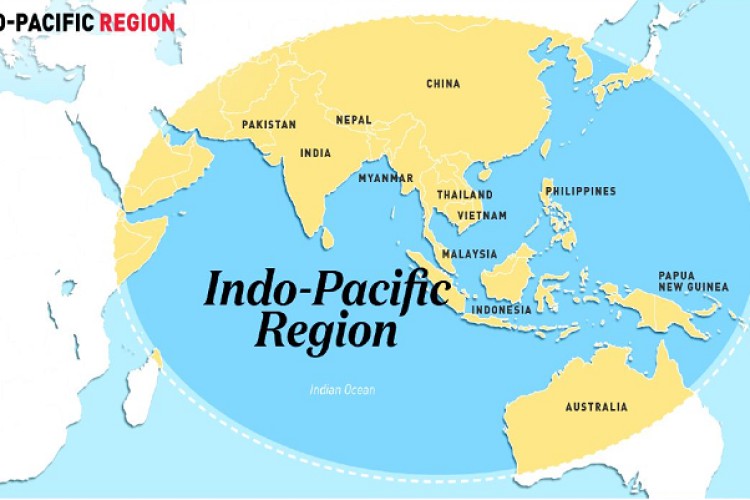
Global repolarization after the Ukraine War
A new polarization has begun in global politics after the Ukraine-Russia war. On the one hand, a new chapter of Saudi Iranian relations has started with the mediation of China. On the other hand, as an ally of the United States, India is leaning towards Russia to adopt a moderate approach to the Ukraine issue. India either abstained from voting on the resolution brought against Russia on the Ukraine issue or voted against the condemnation resolution, which has become very painful for the United States. In return, India gets cheap oil from Russia despite the embargo. The exchange is Russian rubles against the dollar. In this position of India, security analysts and Politicians of the United States have raised the question of whether the dependence of the United States on India in the last twenty years has sunk into the water. Some experts suggest that the U.S. should reduce its dependence on India in South Asia and the Asia Pacific. The country has focused on small states in the region to reduce its dependence on India.
Furthermore, in these countries, the United States is giving priority to the government of the United States, which will uphold the rule of law and human rights. As a result, we see a sudden change of power in Pakistan. U.S. State Department Counselor Derek Chollet oversaw the change of power in Pakistan. Who is also looking after the issue of Bangladesh?
Insolent behavior of the government toward the United States
Since 2013, the United States has been working towards a free, fair, and acceptable election. However, the United States could not do much to block its ally, India, openly. On the other hand, the assistant secretary of the country, Nisha Desai, had to listen to the bully of the 'Minister of two Annas.' The country's ambassador, Marcia Bernicat, directly acknowledged the attack in Dhaka's capital. This was not the end of the incident when Ambassador Peter Haas went to a meeting with the missing families' organization "Mayer Dak" when pro-government people blocked him. Western ambassadors, including Peter Haas, are often threatened by the government to violate diplomatic etiquette whenever they speak about Bangladesh's democracy and human rights. Even after verbally informing Washington about the latest visa ban, the government removed the special protocols of three other countries, including the United States.
Furthermore, the U.S. ambassador in Bangladesh's car flag was forced to go down, which was extremely humiliating for the U.S. Nevertheless, Peter Haas held several meetings with government officials to ensure that a fair and participatory election could be held peacefully. However, the Prime Minister's announcement of not going to America, and the Foreign Minister's announcement of taking property measures against the diplomats indicate that the government's relationship with the United States has reached the bottom. However, two letters from 12 Congress members requesting President Biden have been added new era. There is a request not to involve the Bangladesh Army in the United Nations. Not only that, but Prime Minister Sheikh Hasina is also called a threat to the United States national security.
The ongoing civil war in Myanmar
Civil war is going on in the neighboring country of Bangladesh, Myanmar. Myanmar's junta government has again seized power by eliminating the popularly elected Prime Minister Aung Sun Sochi. The people's anger erupted against it and turned into a civil war. In this matter, China takes the side of the junta government, and the United States takes the side of the people. About 60 percent of Myanmar's territory is now under mob control. The United States recently passed the "Burma Act," which aims to provide financial and technical assistance to the civilian government of Myanmar.
Moreover, Myanmar needs the cooperation of neighboring countries to establish a democratic government. In this case, the United States needs help from India and must rely on Bangladesh. In that journey, the United States needs an acceptable government elected by direct vote of the people of Bangladesh. The newly elected democratic government will help implement its policies in Myanmar. That is why Bangladesh has become the center of interest of the United States.
Global media investigative reporting
When the country's media fails to play a proper role in the ongoing disappearances and murders in the country, the international media pays attention to it. In that became, Al Jazeera Broadcasted 'All the Prime Minister Man,' Deutsche Welle Broadcasted "How the elite police force RAB terrorizes the people of Bangladesh," and Economist preached, "Sheikh Hasina is Asia's iron lady." In this way, international media create an appeal in the formation of global public opinion. In these reports and documentaries, the 'secret mission' of the government to suppress the opposition in Bangladesh was leaked in the World Assembly. These reports are especially trying to attract the attention of U.S. policymakers. As a result, the United States became very interested in the Bangladesh issue.
Continued activities of international human rights organizations
International human rights organizations have continuously expressed their concerns in the past years when domestic human rights organizations have become unable to work on human rights issues under the government's fire. The initiative led by Human Rights Watch, Kennedy Foundation, National Endowment for Democracy, Asian Human Rights Commission, TIB, SAPI, Reporters Without Borders, South Asian Solidarity Foundation, and CHRD Bangladesh etc.
The organizations are not just publishing statements or reports on various issues but working tirelessly with data to change U.S. policy. As a result of which, the issue of sanctions against RAB gained speedy effectiveness. Besides, the U.S. administration is interested in getting involved in the Bangladesh issue by creating a policy paper on bringing the Bangladesh government under accountability under United States law.
Future Bangladesh
Although it is difficult to fully determine what the future of Bangladesh will be in the future, the future of Bangladesh is very critical after reviewing the flow of global events and the foreign policy of the United States. The government has taken U.S. pressure as a challenge. Washington's sphere of dialogue with the government is gradually narrowing. Furthermore, this stubbornness will have a direct impact on the garment industry. It should be remembered that Bangladesh's foreign reserves are highly dependent on the income of the garment sector. The garment industry contributes 9.25 percent of the GDP. In 2022, Bangladesh exported 10 billion dollars worth of garments to the United States alone. Ready-made garments will be next target for the U.S. to impose embargo, which would be a terrible disaster for countries economy. In addition, if the U.N. obstructs the peacekeeping mission from Bangladesh, it will lead to anger among the Bangladesh army. Side by side, foreign currency collection will decline. Bangladesh earns about 300 million U.S. dollars annually from the U.N. peacekeeping mission.
Meanwhile, the United States will soon bring government officials under 7031(C) visa control. Moreover, after these restrictions, it will be complicated for the government to stay in power. Because the economic crisis will be extreme, public dissatisfaction will appear. In addition, the continued support of the United States to establish democracy will encourage the opposition to take to the streets. As a result, the conflict will again spread in the streets. In such a reality, the nation hopes that the government party will be sensible in creating a free and fair election platform.
Writer: Security analyst & Ph.D. candidate, Robert Morris University, PA, USA
The viewpoints expressed by the authors do not necessarily reflect the opinions, viewpoints and editorial policies of Muslim News Network.






